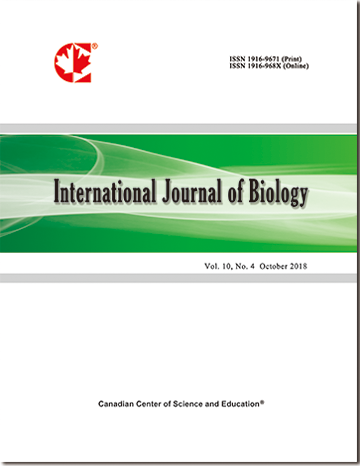Efficacy of Two Commercial Systems for Identification of Clinical and Environmental Escherichia coli
- Hussein Abulreesh
Abstract
The aim of this study was to test the efficacy of API 20E and FluorocultÒ LMX broth in identifying a collection of 200 E. coli isolates. A total of 100 isolates originated from clinical samples (UTI) and 100 isolates from environmental water receiving faecal contamination. Randomly selected isolates that were identified by API 20E and FluorocultÒ LMX broth were further identified by PCR targeting a fragment of the E. coli 16S rRNA gene. The results showed that overall 95% and 100% of the clinical and environmental isolates respectively were identified with various degrees of accuracy as E. coli by API 20E. However, only 86% of the clinical isolates and 32% of environmental isolates were identified with high level of discrimination (90% and above). Identification by FluorocultÒ LMX broth successfully identified 90% and 96% of the clinical and environmental isolates respectively as E. coli. Further identification by PCR showed that 70% (n = 20) and 55% (n = 20) of the isolates that were previously identified by the two commercial systems were successfully identified by PCR. Identification of E. coli isolates of clinical and environmental origins by rapid commercial systems should be interpreted with care, PCR might be used to further confirm the result of rapid identification systems.
- Full Text:
 PDF
PDF
- DOI:10.5539/ijb.v6n2p31
Index
- ACNP
- AGRICOLA
- BASE (Bielefeld Academic Search Engine)
- CAB Abstracts
- CiteFactor
- CNKI Scholar
- CrossRef
- DTU Library
- Elektronische Zeitschriftenbibliothek (EZB)
- Excellence in Research for Australia (ERA)
- Google Scholar
- Infotrieve
- LIVIVO (ZB MED)
- LOCKSS
- Max Planck Institutes
- MIAR
- PKP Open Archives Harvester
- Qualis/CAPES
- ResearchGate
- ROAD
- SafetyLit
- SHERPA/RoMEO
- Technische Informationsbibliothek (TIB)
- Universe Digital Library
- WorldCat
Contact
- Ryan JonesEditorial Assistant
- ijb@ccsenet.org
